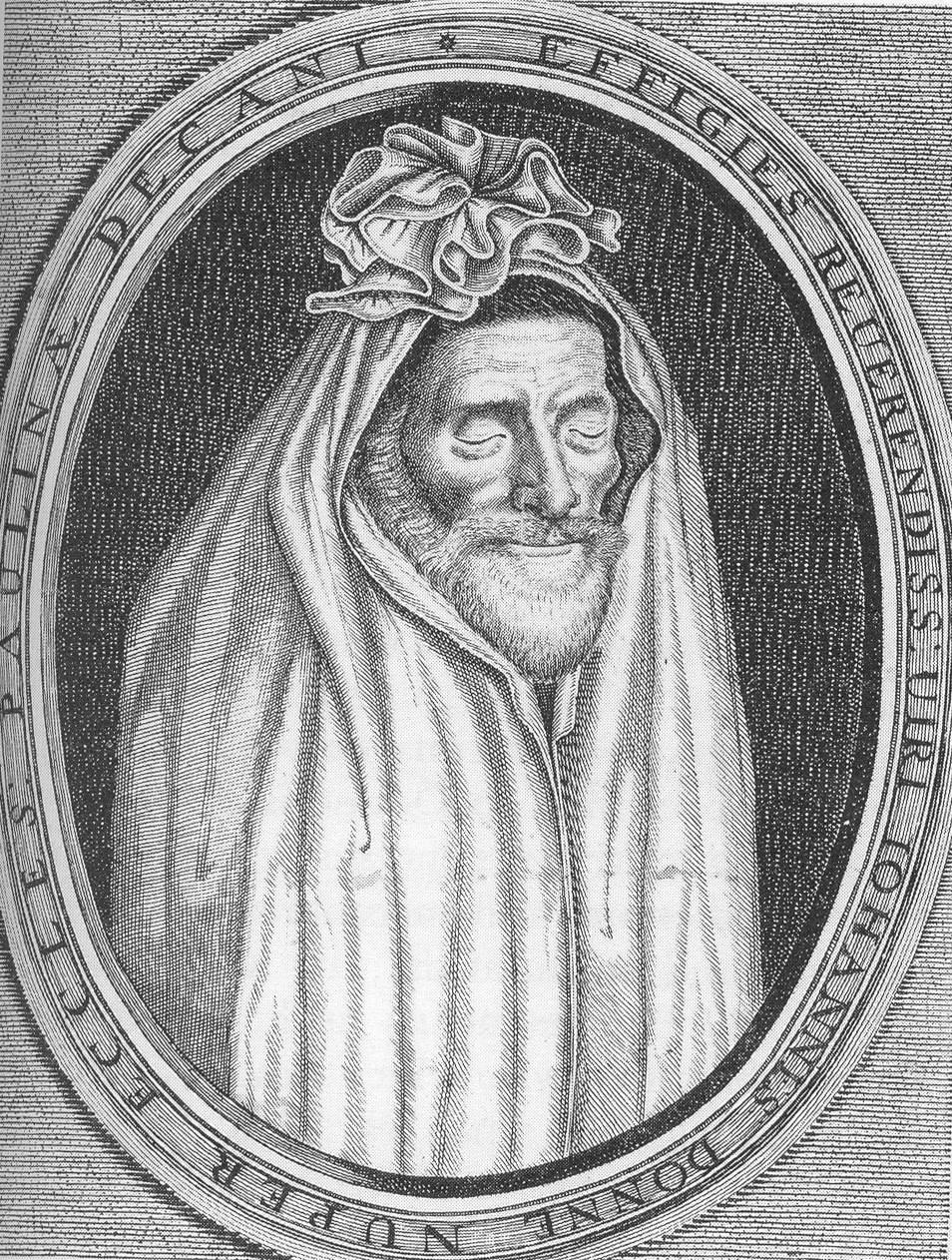Super-Infinite: Everything New is Old Again
A biography of John Donne.

Perhaps you're not currently shopping for books about poets. You might not be considering Super-Infinite: The Transformations of John Donne, the breezy biography of the poet John Donne. No problem. In the age of Substack and other informationally dense media, you could probably use something breezy—if only to lure you away from your phone. Breeziness is underrated.
Why breezy? It's not too long and it has short chapters with titles like 'The Exquisitely Clothed Theoriser on Fashion.' More importantly, Katherine Rundell is a highly visual writer.
- On suicide: "To write about death in the way he did - to send a suction pump down into the gap between what we know and what we fear - was to risk chaos."
- On death: "Spiritually speaking, many of us confronted with the thought of death perform the psychological equivalence of hiding in a box with our knees under our chin."
- On distinctiveness: "Donne saves his most ruthless scorn for those who chew other wits' fruit, and shit out platitudes."
Visual writing is easy to swallow. Luckily, Rundell's words also nourish and intrigue.
The roots of Internet culture
There's nothing new under the sun. This whole "Building a Second Brain" thing has existed since at least Donne's time. But back then it was called a commonplace book. There's something enduring about our impulse for collection and order:
Donne wouldn't be Donne if he hadn't lived in a commonplacing era; it nurtured his collector's sensibility, hoarding images and authorities... The practice of commonplacing — a way of seeking out and storing knowledge, so that you have multiple voices under a single heading — colours Donne's work; one thought reaches out to another, across the barriers of tradition, and ends up somewhere fresh and strange.
Going viral is another online phenomenon that turns out to have precedents in the 17th century. Even though Donne didn't usually intend to publish his poetry—often writing it in letters to friends, it ended up being copied and shared widely.
But Donne's poetry was different in one thing: once it escaped from his immediate grasp, it spread like fire... Without having any way of knowing of it, he became one of the most popular manuscript poets his generation. A fair number of the copied-out poems are unattributed, so men and women didn't necessarily know who they were writing out into their books, whose poetry they were sending to a sweetheart or carrying around for luck: they only knew they loved and coveted it.
Finally, it's become cliché to point out that we live in an age of distraction. But Donne's struggle to stay focused during prayer suggests that some level of distractibility is hardwired:
I throw myself down in my chamber, and I call in and invite God and his angels thither; and when they are there, I ignore God and his angels for the noise of a fly, for the rattling of a coach, for the whining of a door; I talk on... sometimes I find that I forgot what I was about, but when I began to forget it, I cannot tell. A memory of yesterday's pleasures, a fear of tomorrow's dangers, a straw under my knee, a noise in mine ear, a light in mine eye, an any thing, a nothing, a fancy, a chimera in my brain, troubles me in my prayer.
'Nor yet canst thou kill me'
Human nature may not have changed since the late 16th century. But death has. Death was everywhere in the late 16th Century. "Almost every adult was likely to have seen a dead body," Rundell writes. You can understand why it was the subject of one of Donne's most famous poems ('Death be not proud') and much of his writing generally.
Donne's brother Henry died in jail at nineteen. His crime was providing housing to a Catholic priest at a time when Catholicism was outlawed. He contracted the plague and died, "tortured by buboes," while in a notoriously filthy jail. ("The floor was said to crunch because of the carpet of lice, dead and alive.")
It was a brutal time, and not just because of the plague. The ruling class had a boundless appetite for cruelty:
At the time, the penalty for being a Catholic priest was to be hanged, drawn and quartered — which meant being stretched, hung until almost dead, and then having the arms and legs severed from the body while crowds looked on.
Donne's wife Anne died at 33 after giving birth to a stillborn child, her twelfth. She spent most of her adult life pregnant or nursing. Only seven of the Donne children were alive when she died.

Unbridled enthusiasm
I'll no more dote and run
To pursue things which, had, endamage me;
And when I come where moving beauties be,
As men do when the summer's sun
Grows great,
Though I admire their greatness, shun their heat:
Each place can afford shadows. If all fail,
"Tis but applying worm-seed to the tail.
To borrow from Seinfeld, Super-Infinite is a story of unbridled enthusiasm. Rundell is a fan. It's a measure of the book's success that it left me wanting more. Although I'm not sure if it's Donne I crave or Rundell on Donne. There's no way I could appreciate the poem quoted above ('Farewell to Love') without her commentary:
Donne's poems have fault-lines - they slip away from you. Worm-seed was a concoction made of flower heads, an anti-aphrodisiac. The 'tail' is a Latin dick joke (because the Ciceronian Latin for 'tail' is penis). The lines are Donneanly ambiguous: they could mean, if all else fails, the speaker can simply apply worm-seed to the penis to cool their ardour. But it could be the opposite. Worm-seed only worked when taken orally, a fact which Donne, the stepson of a physician, would have known.
